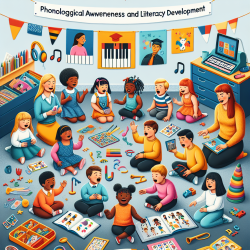Introduction
In the realm of speech-language pathology, data-driven decisions are crucial for crafting effective therapy plans. But what if we told you that the principles derived from a study on food waste in Saudi Arabia could enhance your practice? The systematic review titled "Food waste posing a serious threat to sustainability in the Kingdom of Saudi Arabia" offers insights that extend beyond environmental concerns, touching on awareness, education, and behavioral change—key elements that can be integrated into therapeutic practices.
Understanding the Study
The study highlights the alarming rate of food waste in Saudi Arabia, with 427 kg of food wasted per capita annually. This waste is attributed to several factors, including lack of awareness, cultural norms, and insufficient planning. The study suggests launching a "Stop Wasting Food" campaign, focusing on education and capacity building, particularly targeting women and youth.
Implications for Speech-Language Pathologists
While the study focuses on food waste, the underlying themes of awareness, education, and behavior change are directly applicable to speech therapy. Here’s how you can leverage these insights:
- Awareness and Education: Just as the study recommends educating the public on food waste, speech therapists can emphasize educating parents and caregivers about the importance of early intervention and consistent practice at home.
- Behavioral Change: The study's focus on changing societal norms can be mirrored in therapy by encouraging adaptive communication behaviors in children and their families.
- Community Involvement: Engaging communities in food waste reduction parallels involving families and schools in supporting a child's communication development.
Encouraging Further Research
The study calls for more scientific investigations to understand the full scope of food waste. Similarly, speech-language pathologists should advocate for research into effective intervention strategies, particularly those that are culturally sensitive and evidence-based.
Conclusion
By drawing parallels between the systematic review on food waste and speech therapy practices, we can enhance our approach to therapy. Emphasizing education, awareness, and community involvement not only addresses sustainability but also enriches the therapeutic process, ultimately leading to better outcomes for children.
To read the original research paper, please follow this link: Food waste posing a serious threat to sustainability in the Kingdom of Saudi Arabia – A systematic review.










